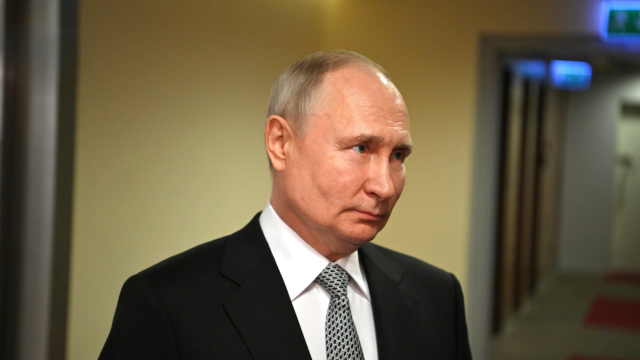Russia’s ban on the secure messaging app Telegram hasn’t exactly been met with unquestioning obedience and support.
State banking giant Sberbank sent its employees instructions on how to get around the blocking of Telegram (the bank currently uses the service for its corporate communications). Deputy Telecom and Communications Minister Alexei Volin, a state official, no less, hinted at how to bypass the ban, and admitted that he himself uses a VPN to do so.
Instructions on circumventing the block even appeared on the website of Rossia, a state-run television channel, though the material was quickly deleted. Many other state officials and parliamentary deputies have refrained from publicly expressing their disapproval, but have admitted in private conversations to having installed a VPN to continue using the service.
Telegram was banned by a Moscow court ruling on April 13, after the state communications watchdog Roskomnadzor filed a complaint against it because Pavel Durov, Telegram’s Russian creator, refused to hand over the encryption keys to the Federal Security Service (FSB).
If communication via the messenger can’t be monitored, it must be banned, Roskomnadzor argued, and started blocking IP addresses linked to Telegram on April 16. But officials and lawmakers have continued to use the messenger, as revealed by contact lists, which show the last time other users have used the app.
The appearance of instructions on how to get around the ban in politicized Telegram channels and chat groups and in the media were predictable and understandable. People who take an interest in politics already know how to use a VPN or the Tor anonymity network, since many opposition websites are blocked in Russia.
For everyone else, the concepts of a VPN, proxy servers, and Tor were either unknown, or seemed too complicated to make use of. After all, the thinking went, no one was about to block mainstream websites, messaging services, or social networks. The ban on Telegram has changed this situation fundamentally.
Until last week, Telegram was mostly a medium for completely non-politicized communications, where work colleagues discussed projects they were working on and deadlines, apartment building residents chatted about communal space issues, and people with a shared interest exchanged ideas.
Now, this unpolitical space has abruptly become politicized. In any chat now, you will find instructions on how to get around the ban, as well as a discussion of the merits and downsides of the various methods. Along the way, users both slam the authorities for forcing them to fiddle with their internet settings, and mock them.
Authority figures have suggested that users turn to the long-forgotten messenger service ICQ or other alternatives such as TamTam, Viber, or WhatsApp. But Telegram users prefer to bypass the block on it: they like the options it offers, and are reluctant to change their habits.
The ban has turned out to be something of a Rubicon both in relations between the authorities and ordinary people, and within the power vertical itself.
It’s enough to recall reactions to the Russian government’s ban on Western food imports in response to Western sanctions against Russia over the Ukraine conflict: the food ban was publicly supported not only by officials and lawmakers, but also by rank-and-file Russians.
People posted photos of Russian-made food items on social networks, proudly declaring they would happily go without jamón and Parmesan. The Black Sea holiday resorts of Crimea and Sochi attracted the same patriotic interest when charter flights to Turkey were banned in 2015 after Turkey shot down a Russian attack aircraft over the Turkey-Syria border. (That ban has since been lifted.)
As a rule, Russians have greeted bans by the authorities with approval or indifference. But with Telegram, everything has changed. Only one parliamentary deputy, Sergei Boyarsky of the ruling United Russian party, has demonstratively deleted the app from his smartphone. Yet it’s easy to imagine that just a couple of years ago, his entire party faction in the parliament would have done so. Now he is merely ridiculed.
Unlike in previous cases, this time a significant proportion of Russian society that was previously far from opposition-minded is willfully refusing to obey the new ban.
Even citing the threat of Islamic State, which is banned as a terrorist organization in Russia, has not helped. Using antiterrorism measures as an argument has always been a sure bet in Russia.
The authorities say that people are breaking the law, and in response, Russian society shrugs its shoulders and forwards instructions on how to outwit the blocking mechanism.
The blocking of Telegram over somewhat dubious terrorism considerations means Russians are faced with a choice and some questions. Can the authorities lay down detrimental and inconvenient rules for ordinary people, and must they be obeyed? If the rules are unfair, is it acceptable to break them? And can ordinary people make their own more just rules, and live according to them instead?
No doubt the authorities were counting on the usual support, but instead, they are seeing the opposite.
People are consciously prepared to trample the ban and break rules that they consider to be unfair. If they hadn’t been provoked, they would have continued to chat about car parking, deadlines and building renovations. They would have continued reading prominent Telegram channels and communicating with friends, without even thinking of breaking the law.
Instead, apolitical users who had nothing to hide from the authorities anyway are becoming political, deliberately sidestepping the ban, and entering a gray, uncontrolled area. Partial control is lost, and even the ability to control itself is weakened.
But the public’s interpretation of rules and laws laid down by the state as unfair and detrimental is becoming a sign of the times.
After the State Duma produced a draft bill of sanctions against the United States and its allies that included a ban on exporting titanium to the United States, titanium producer VSMPO AVISMA openly spoke out against the measures.
If we look back to the sanctions war of 2014, the Russians who suffered as a result of the sanctions and countermeasures stubbornly insisted that the restrictions were a good thing. Now, while the authorities continue to introduce new bans, business is beginning to speak out against them.
Laying down harsh regulations and limitations is starting to make people question their fairness, and we are seeing the appearance of an alternative take on rules and laws to the government’s position.
Andrey Pertsev is a journalist with the Kommersant newspaper and a regular contributor to The Carnegie Center Moscow, where this piece was originally published. The views and opinions expressed in opinion pieces do not necessarily reflect the position of The Moscow Times.

A Message from The Moscow Times:
Dear readers,
We are facing unprecedented challenges. Russia's Prosecutor General's Office has designated The Moscow Times as an "undesirable" organization, criminalizing our work and putting our staff at risk of prosecution. This follows our earlier unjust labeling as a "foreign agent."
These actions are direct attempts to silence independent journalism in Russia. The authorities claim our work "discredits the decisions of the Russian leadership." We see things differently: we strive to provide accurate, unbiased reporting on Russia.
We, the journalists of The Moscow Times, refuse to be silenced. But to continue our work, we need your help.
Your support, no matter how small, makes a world of difference. If you can, please support us monthly starting from just $2. It's quick to set up, and every contribution makes a significant impact.
By supporting The Moscow Times, you're defending open, independent journalism in the face of repression. Thank you for standing with us.
Remind me later.








